
Daniel Oliveros and Jeff Sokolin were known as the "sexy boys" because they often described the wines they sold as "sexy juice."
Oliveros and Sokolin ran Royal Wine Merchants, a Manhattan retailer that was, until a few years ago, one of the biggest players in the fine wine market. They lived as lavishly as their wealthy customers—staying in swank hotels, often hiring limousines, and routinely opening thousands of dollars' worth of rare wines.
Oliveros' marriage to porn star Savanna Samson added to the aura and the intrigue. But what really set the sexy boys apart was their seemingly limitless stock of legendary old wines, many of them in supersize bottles—quantities and formats that no one else could get their hands on.
They bombarded clients with faxes touting their latest finds: multiple bottles of 1961 Latour à Pomerol ("Kinky Juice!"), magnums of 1945 Mouton Rothschild ("our latest sexy purchase"), a double magnum of 1949 Cheval Blanc ("Perfect condition. Better than 1947!!! Trust me!!!"). It seemed too good to be true. Apparently, it was.
Billionaire wine collector Bill Koch recently filed a lawsuit against Christie's auction house that includes some provocative claims about Oliveros and Sokolin.
Third-party import records obtained by Koch suggest that Royal served as a conduit for Hardy Rodenstock, the suspected wine counterfeiter at the heart of the flap over the so-called Thomas Jefferson bottles. These invoices, which provide the first solid numbers hinting at the scale of Rodenstock's activities, show that the Munich-based collector shipped hundreds of bottles of wine, virtually all of them rarities, to the United States through Royal.
The quantities are improbably large, and wine experts who have seen the figures believe that many if not most of these wines were knockoffs. Koch's suit doesn't say what Royal did with the bottles that it received from Rodenstock, but Slate has turned up evidence tying Oliveros and Sokolin to the sales of counterfeit wines, and at least one of the fakes they allegedly sold, a 1921 Château Pétrus, is on the list of wines that Rodenstock sent to them.
Koch, a 70-year-old energy tycoon, is notoriously litigious, and the Christie's complaint is the sixth lawsuit he has brought since 2006 as part of an effort to combat what he believes is an epidemic of wine counterfeiting.
Three weeks ago, a U.S. District Court awarded him a default judgment in litigation that he had initiated against Rodenstock in 2006. On May 27, a New York court dealt him a setback, dismissing a fraud complaint that he had filed against Acker Merrall & Condit, another auction house, in 2008.
The four other suits are still pending. Koch, who has a 40,000-bottle collection, purchased four of the Jefferson wines in the late 1980s, and he launched his crusade after learning that these were likely fakes and that other wines in his cellar were also suspect.
Koch seems to feel that the wine auction market is full of swindlers and charlatans. I'm not quite so cynical, but having examined his many claims skeptically, I think that he is shining some light in a place that badly needs it. Many industry insiders agree and believe the Rodenstock invoices prove that the rare wine business has indeed been polluted by fraud.
Koch's lawsuit against Christie's also puts another name into play: Robert Parker, the world's most influential wine critic. The 1921 Pétrus—a wine that links Rodenstock to Royal, and Royal to the sale of counterfeit wines—became a highly sought-after collectible when Parker awarded it a perfect score, 100 points, at a tasting that Rodenstock hosted in Munich in 1995.
In recent years, amid growing controversy over Rodenstock, Parker has sought to downplay his presence at that event and to distance himself from the metastasizing counterfeiting scandal. But Koch's allegations about Royal have now brought the scandal right to his glass. While no one is accusing Parker of any improprieties, the information concerning Royal raises a troubling question: Did Oliveros, Sokolin, and Rodenstock take advantage of their connection to Parker to help sell fake wines?
Oliveros, a native of Venezuela, and Sokolin, who is of Russian descent, opened Royal in 1990. The liquor license was in Sokolin's name alone. Four years earlier, according to court records, Oliveros had been arrested and charged with stealing approximately $20,000 worth of wine from Long Island's Garden City Hotel, where he had been employed. Reached by phone, Oliveros confirmed the arrest and said he had pleaded guilty.
Oliveros and Sokolin installed themselves in a peculiar location—an out-of-the-way apartment complex on Manhattan's East Side that was reached by crossing a footbridge over FDR Drive.
The front of the store was unremarkable, but the back room was another story: It was bursting with fabled wines. After visiting Royal in 1999, a gobsmacked William Grimes of The New York Times described it as "Ali Baba's cave" and reported that "Strewn all over the floor and stacked in the makeshift racks were the artifacts of a glorious civilization. A 1952 Latour caught my eye. Then a 1949 Chateau d'Yquem, a 1955 Cheval Blanc, a 1900 Lafite. … The display was, shall we say, casual. Sitting on a case of priceless Bordeaux was someone's lunch."
Royal's huge inventory of great Bordeaux and Burgundies quickly made it a favorite among collectors. Oliveros and Sokolin also became renowned for their splashy tastings (as well as the acuity of their palates, which seems to be a recurring theme—Rodenstock, too, was known to be impressively discerning).
Usually held at Oliveros' Manhattan apartment, the tastings would begin first thing in the morning, run late into the night, and feature a dizzying procession of venerated wines, which were knocked down with cold cuts and Indian takeout. Whether they were uncorking dozens of iconic bottles or staying at the luxurious Hôtel de Crillon in Paris, Oliveros and Sokolin lived inexplicably well for wine retailers, and among their peers, they were the subject of constant speculation and much suspicion.
Where were they getting all the money, and more importantly, where were they getting all the wine?
Bill Koch's lawsuit against Christie's suggests one answer: Hardy Rodenstock. According to records obtained by Koch, Rodenstock shipped 818 bottles of wine to Royal between 1998 and 2008. (Koch is now trying to find out what other wines Rodenstock might have sent to Royal during this period or prior to 1998.) The invoices, which Slate has examined, contain staggering quantities of celebrated wines, an astonishing 87 percent of them in large-format bottles (which are rarer than standard 750 ml bottles and are particularly prized by collectors). One hundred and seven magnums of 1961 Pétrus.
One hundred and one magnums of 1961 Latour. Eighty magnums of 1945 Mouton Rothschild. Forty-seven magnums of 1947 Cheval Blanc. On and on it goes. By Koch's calculations, the total value of the wines, if they were legitimate, would be just under $8 million. But among people in the wine industry with whom I've spoken—and I've done more than three dozen interviews for this article—there is deep skepticism about the authenticity of the wines that Rodenstock shipped to Royal.
"It's impossible that someone could come up with that many bottles of these wines in such a short period of time," Geoffrey Troy, a longtime New York fine wine merchant said. "It doesn't add up. There's just no way."
Despite the doubts about Rodenstock's wines, it has still not been proven in a court of law that the bottles he sent to Royal were fakes, that Royal knew they were fakes, or that it sold them. (As for what might have been in those bottles if they were indeed counterfeits, no one has a clue at this point. Click here to learn more about how fake wines are made.) Contacted by Slate, Rodenstock declined to comment on the matter. In a letter that he sent to U.S. Magistrate Judge Debra Freeman on April 29, he claimed that he had never delivered some of the wines listed on the invoices. He said nothing about the legitimacy of the wines. When Sokolin was deposed by Koch's side earlier this year, he was shown the invoices and confirmed that they were genuine.
Oliveros told Slate that Royal did "some business" with Rodenstock and that he had "zero concern" about the authenticity of the wines. He said he remains in touch with Rodenstock and would continue to buy wine from him if the opportunity or need arose.
Alongside the import records that Koch has brought to light, Slate has found other information suggesting that Royal—which is still doing business, but at a different Manhattan location—has been a major source of counterfeit wines. A wine consultant who worked for Christie's in the mid-1990s told me that the majority of the suspicious wines that he and his colleagues came across at that time were traced back to Royal, which he described as "the most consistent problem in the supply chain."
A current employee of Sotheby's said that Royal has accounted for an "inordinate share" of the fakes that his firm has encountered. Additionally, a prominent collector and one fine wine dealer both said they stopped buying older wines from Royal in the mid-1990s after being sold bottles that they judged to be counterfeits. (Most of the people interviewed for this story asked to remain anonymous because of pending or potential litigation related to these issues.) But it's an ongoing dispute between Koch and a Bay Area collector named Eric Greenberg that offers the clearest indication that Royal was selling fraudulent wines, and at the center of the dispute is a bottle of 1921 Chateau Pétrus.
In 2007, Koch filed a lawsuit alleging that Greenberg knowingly sold him seven counterfeit wines at an auction in New York, including a magnum of the 21 Pétrus. Koch's complaint, which is still pending, asserts that Greenberg, a tech investor, bought certain of these bottles from Royal, and an insurance claim that Greenberg filed appears to support this. Koch obtained the claim earlier this year after subpoenaing it from Fireman's Fund Insurance Company, and his investigators shared it with Slate. It shows that Greenberg purchased $2.1 million worth of wine from Royal between January 2000 and March 2002.
In or around 2002, according to Koch's suit, Greenberg was informed by Sotheby's that his wine collection, comprising "tens of thousands of bottles," contained a "significant number" of fakes. Koch says that an independent appraiser hired by Greenberg, William Edgerton, confirmed that there were counterfeit wines in Greenberg's collection. Both Sotheby's and Edgerton verified these details for Slate. (Edgerton is now consulting for Koch.) Greenberg filed his insurance claim in May 2002. In it, he said that Royal had sold him dozens of fake wines; by his tally, fraudulent bottles accounted for $912,301 and possibly more of the $2.1 million in wine that he had purchased from Royal during that two-year period. He provided Fireman's Fund with a list of wines that he bought from Royal, and it included five magnums of 1921 Pétrus.
In November 2002, the insurance claim was denied because Greenberg's wasn't covered against losses related to fraudulent business transactions and his policy had also expired. According to Koch's lawsuit, Greenberg hired an attorney to pursue claims against Royal but then settled with Oliveros and Sokolin. Oliveros told Slate that Greenberg was "a good client" and bought "a fair amount of wine from us" but said he couldn't comment on any dispute that Royal may have had with him or any settlement they may have reached.
In October 2005, Greenberg sold 17,000 bottles of wine at a Zachys auction in New York. Bill Koch participated in that sale, and among his purchases was a magnum of 1921 Pétrus, for which he paid $29,500. A few months later, suddenly concerned about the authenticity of many of his wines, Koch sent the magnum to Bordeaux to be inspected by the Pétrus staff. They concluded that it was a fake, according to Koch spokesman Brad Goldstein. In their judgment, the cork was an incorrect length, and both the capsule and label had been doctored to look old. The château confirmed for Slate that it had expressed serious doubts about Koch's magnum.
In his suit against Greenberg, Koch says that he was told by Zachys, which is also named in the complaint, that the magnum had been put up for sale by Greenberg. (Reached by e-mail, Jeff Zacharia, the president of Zachys Wine Auctions, said, "No one is disputing the claim that the bottle of 1921 Petrus that Bill Koch purchased at the October 2005 auction came from Eric Greenberg's consignment.") Koch alleges that Greenberg subsequently informed him that he believed he had bought the bottle from Royal, and Greenberg's insurance claim would appear to corroborate this. Greenberg, through his lawyer, refused to comment. In his answer to Koch's lawsuit, Greenberg denied Koch's claim that Sotheby's and Edgerton had discovered a number of fake wines in his cellar, denied knowingly selling any fake wines, and said that Koch had spurned his offer of a refund.
In 2008, his motion to have the case dismissed was rejected by U.S. District Judge Barbara S. Jones, who wrote that "the particularly egregious nature of Greenberg's alleged conduct is demonstrated by his decision to sell wine at auction that he knew two experts had determined to be counterfeit." Interviewed by the Wine Spectator last year [subscription required], Greenberg said of Koch's lawsuit: "Out of 17,000 bottles I consigned, he found a couple of fakes. That's not fraud, that's a mistake. I did not knowingly put fake wine out there." Over the Memorial Day weekend, Greenberg sold around $19 million worth of wine at an Acker Merrall & Condit auction in Hong Kong. According to Acker, it was the second-biggest wine auction in history.
So if Greenberg bought the Pétrus magnum from Royal, where did Royal get the bottle ? The shipping invoices obtained by Koch suggest it came from Rodenstock. The records show that Rodenstock sent 21 magnums of 1921 Pétrus to Royal between 1998 and 2004. Eleven arrived prior to 2000, the year that Greenberg purchased his five magnums, according to his insurance claim. Oliveros said he couldn't comment on the invoices but that Royal has received '21 Pétrus from Rodenstock in the past. A source close to Pétrus told me he was "more than skeptical" about the authenticity of Rodenstock's magnums. He said that the château has no record of magnums being bottled there in the 1920s. Some négociants may have produced magnums of the '21; back in the day, Pétrus sold part of its output in bulk to merchants who would bottle and label the wines themselves. But he noted that in the 1920s, Pétrus was considered an everyday wine best consumed young and there thus would have been little demand for large-format bottles and little incentive to make more than just a token number of them. The idea that one person, some 80 years later, could unearth nearly two dozen magnums of the '21 struck the source as highly unlikely.
If Rodenstock's ability to procure so many 1921 Pétrus magnums seems suspicious, the timing of his shipments makes perfect sense. Starting in the mid-1990s, demand for the '21 surged thanks to the 100-point rating that Robert Parker had recently awarded the wine. Parker's tasting note was effusive. He described the '21 as "out of this universe!" and "one of the sweetest, most opulent, thick, juicy wines I have ever tasted." His note was based on a magnum that was served by Rodenstock at a bacchanal he hosted in Munich in the fall of 1995. Joining Parker in Munich that weekend were Oliveros and Sokolin. In all likelihood, Parker wouldn't have been there had it not been for them.
During the 1990s, Parker regularly met up with Oliveros and Sokolin. When Slate contacted Parker, who is 62, with a list of questions pertaining to Royal, his lawyer responded with a letter stating that he'd advised Parker not to comment. The reticence is understandable: It now appears that Royal dumped a lot of counterfeit wines on the market over the last two decades.
In February, Parker was deposed by an attorney for Koch, and much of the discussion focused on his ties to Oliveros and Sokolin. In the deposition, which Slate obtained, Parker said that he "saw them socially a number of times" and that they "seemed to have a lot of contacts for wine." This last point surely explains much of the attraction for Parker: The Royal duo shared many rare wines with him. During the deposition, Parker said that he stopped getting together with Oliveros and Sokolin in the late 1990s because of concerns he had about their "excessive lifestyle" and also about the authenticity of their wines; according to Parker, they had sold a friend of his, a collector named Park B. Smith, fake bottles of 1990 Château Rayas, a Châteauneuf-du-Pape.
Parker took part in some of Oliveros and Sokolin's big tastings. During his deposition, he recalled participating in three of them. A collector who went to many of these events told me that Parker was present for "at least a half-dozen." Three other people with whom I spoke and who also attended various Oliveros and Sokolin tastings said that Parker was among the guests when they went. (All of these individuals believe that the wines poured on these occasions were legitimate. One theory that has been suggested: Oliveros and Sokolin served Parker the genuine articles and pawned off their fakes on less discerning palates.)
In addition to attending these gatherings, which would bring together a number of aficionados, Parker, who lives in Maryland, often joined Oliveros and Sokolin for wine-soaked lunches in New York. The multiple sources who provided this information said the lunches were normally held at Restaurant Daniel, and that Oliveros and Sokolin would typically have several clients in tow and would also supply many if not most of the wines—usually older Bordeaux. Parker wasn't asked about the lunches during his deposition. But Oliveros confirmed for Slate that they took place "once every six months, or twice every six months, depending on [Parker's] schedule. Whenever he might have been in town, we would organize something if he had the time." He said the get-togethers ended after Restaurant Daniel stopped serving lunch in 2001.
Oliveros said that he and Sokolin never tried to cash in on their ties to Parker. "He was just a professional writer we admired," Oliveros told Slate. But it doesn't appear that they were shy about advertising the relationship; even now, Royal's Web site features photos of the three men hanging out together. Eric Greenberg's insurance claim includes what were evidently private offers to him from Royal, and some of these solicitations made clear that Oliveros and Sokolin were on close terms with Parker. When Royal tried to interest Greenberg in a double magnum of 1921 Haut-Brion, the note said, "Unfortunately, Bob has not tried it yet so I have no reviews to give you." A message touting a magnum of 1947 Latour à Pomerol read, "Jeff just called from Brussels where he was able to secure one or more of these puppies. He and Daniel were at a tasting with Mr. Parker and Frans de Cock where they drank magnums of 1947 Mouton, 1947 Lafleur, 1948 Lafleur Petrus, 1979 Ramonet Montrachet, 1980 Jayer Echezeaux and all were excellent. …"
Hardy Rodenstock (far left) and Robert Parker (far right) at the 1995 Munich tasting. Click image to expand.Hardy Rodenstock (far left) and Robert Parker (far right) at the 1995 Munich tastingIn his deposition, Parker said that Oliveros and Sokolin introduced him to Rodenstock. He told Koch's attorney that the four men had dined together twice in Paris and that it was obvious to him that Oliveros, Sokolin, and Rodenstock were "good friends or business associates."
Like Oliveros and Sokolin, Rodenstock was renowned for the tastings that he hosted, but his were even more decadent—they were often multiday affairs that featured wines spanning several centuries. And he was apparently very intent on getting Parker, the world's pre-eminent wine critic, to come to his events; Parker told Koch's lawyer that he was invited to a number of Rodenstock tastings before he'd even met the German. Parker finally went to one in 1995; he was among the guests at a weekend-long wine orgy in Munich organized by Rodenstock. In recent years, Parker has said that this was the only Rodenstock fete he ever attended and that the "over-the-top generosity and extravagance was enough to scare me away from all other invitations."
But that doesn't square with what he said at the time. In the February 1996 issue of his newsletter, the Wine Advocate, Parker wrote that the Munich gathering was "the most extraordinary three days of wine tasting, superb eating, and wine camaraderie that I have ever experienced." He was full of praise for Rodenstock and dismissed concerns that had been expressed about him and his wines. Parker wrote that the "unkind remarks I had read about [Rodenstock] were untrue. A man of extraordinary charm and graciousness, Rodenstock is a true wine lover in the greatest sense of the word, as well as exceptionally knowledgeable, and generous to a fault (he charges nothing for the opportunity to participate in his tastings)."
Nor was the Munich tasting the last time that Parker saw Rodenstock or benefited from his generosity. In December 1996, he was a guest at Rodenstock's 55th birthday party, which was held in New York. It was an intimate gathering—about 10 people at Restaurant Daniel. Oliveros and Sokolin were among the other attendees. Rodenstock supplied the wines, which included a bottle of 1961 Pétrus, magnums of various 1948 Pomerols, magnums of 1900 Pétrus and 1899 L'Eglise-Clinet, and a bottle of 1841 Château d'Yquem.
Although Parker's book Bordeaux: A Consumer's Guide to the World's Finest Wines, includes a tasting note, dated "December 1996," for what he said was "believed to be a magnum of the 1900 Pétrus found in a private cellar in St-Emilion" (he didn't love it, rating it just 89 points), Parker said in his deposition that he couldn't remember the evening. However, two other people who were there not only recalled the dinner well enough to name all the guests and all the wines, but the exact date that the party took place (December 7). Oliveros, too, remembered a dinner at Daniel with Parker and Rodenstock but said he couldn't recall the date or if it was a birthday celebration.
Parker has always insisted that it is "imperative" for a critic to keep his distance from the wine trade, and one reason that he came to wield such remarkable influence was the widespread perception that he scrupulously avoided compromising situations. In his deposition, Parker claimed that at the time of the Munich tasting, he was unaware that Rodenstock was selling wines. But he said it was clear that the German had courted him because he wanted the validation. As Parker put it, "I assumed it was because of my prominence in the wine field … it was sort of like, if I can get Parker, that would be great … you line up the head people in the field, you get them there, it gives credibility to your tasting. They then write about it and in my case write very favorably about it. It's a win win win situation for Rodenstock." Photos from the Munich event show Rodenstock at Parker's side, and in the years since, he has invoked the famed critic to defend himself against accusations of fraud. Rodenstock named Parker as a potential supporting witness in the lawsuit that Koch brought against him.
In a letter that he sent to one of Koch's attorneys in 2008, he denied serving counterfeit wines at some tastings in New York; he said that the authenticity of the bottles "can be testified by Robert Parker, the worldwide no. 1 wine expert. He was there and his tasting notes can be read in his books or on the internet" (he didn't specify which tastings or when they took place). Asked by The New Yorker in 2007 about the 1921 Pétrus, one of the wines served in Munich, Rodenstock noted Parker's 100-point rating and said, "Is there any better proof that the wine was genuine when world-renowned experts described it as superb and gave it the highest possible grade?"
Magnums of Petrus at Hardy Rodenstock’s Munich tasting. Click image to expand.Magnums of Petrus at Hardy Rodenstock's Munich tastingBut Parker may have done more for Rodenstock than just boost his credibility. That "highest possible grade"—the 100-point rating that Parker gave to the 21 Pétrus at the Munich tasting—was a bonanza for anyone who had bottles of the 21 to sell, and judging from the import records that Koch obtained, Rodenstock had quite a few of them to unload. In 1991, a double magnum of the 21 had fetched $6,800 at a Christie's auction in London. Then came Parker's perfect score, which was catnip for wealthy collectors. In 2000, according to his insurance claim, Eric Greenberg paid nearly $10,000 apiece for five magnums of the '21, and five years later, Bill Koch spent almost $30,000 for one of Greenberg's magnums at the Zachys auction in New York. Although Parker had never had the wine before, he still believes that the '21 he drank in Munich was real, according to the tasting note that is available on his Web site.
But in a 2007 interview with Toronto's Globe and Mail, he allowed that the bottle may have been a fake, and on his site, his wine reviews from that weekend now carry a note acknowledging the controversy surrounding Rodenstock. Whether the Munich bottle was genuine or not, Parker's 100-point rating ignited unprecedented demand for the '21, and it appears that Rodenstock, via Oliveros and Sokolin, furnished at least some of the supply.
The '21 Pétrus was just one of many suspect wines that Rodenstock shipped to Royal, which raises a disturbing possibility: Might Parker have been used by Oliveros and Sokolin, either on their own or in concert with Rodenstock, to move other potentially fraudulent wines? That is, did they serve him certain bottles, real or fake, because they wanted ratings that would help them sell phony versions of those wines?
Oliveros said that he and Sokolin did not open any wines for Parker with an eye to obtaining scores but that Parker may have produced write-ups based on bottles that they shared with him. Last October, Koch's team, hoping to learn if there was a link between wines that Parker drank with Oliveros and Sokolin, his reviews, and any fakes that Royal might have put on the market, subpoenaed Parker's notes from those tastings. Parker replied that the documents Koch sought were publicly available, though he didn't specify which of his tasting notes were taken from events with Royal.
(Koch also subpoenaed Parker's notes for events that involved Rodenstock; according to Koch spokesman Brad Goldstein, Parker turned over some 400 pages of published reviews and comments in response to that request.)
When he was deposed in February, Parker told Koch's attorney that some of his published tasting notes resulted from get-togethers with Oliveros and Sokolin; he gave no indication of how many. Parker was asked about one particular Oliveros and Sokolin tasting, and he said that he "probably didn't" mention in his published account of the event that it had been hosted by Royal because "I don't want to look like I'm promoting a retailer that is selling the wines." (Several editions of Parker's Wine Buyer's Guide included Oliveros, Sokolin, and Rodenstock in the acknowledgments, but all three men were missing from the most recent edition, which came out in 2008.)
Oliveros and Sokolin were not so discreet, and the Parker connection was apparently good for their business. Parker's relationship with them was well-known in wine circles, and it carried weight with other players in the market. As one merchant who says that he purchased a lot of wine from Royal—and who remains a Parker admirer—told Slate, "People look to Parker for guidance, and when you see him hanging out with these guys, of course it influences you. Who wouldn't be influenced?" Whether or not Parker was set up by Oliveros and Sokolin, the relationship that he had with them helped Royal sell wines, and many of the wines that it sold were evidently fakes.
There is no indication that Parker was complicit in any wrongdoing. But by becoming entangled with Oliveros, Sokolin, and Rodenstock, he may have unwittingly had a role in corrupting the fine wine market, which would be a bitter irony for a critic who claimed Ralph Nader as his inspiration and who has long presented himself as the consumer's advocate.










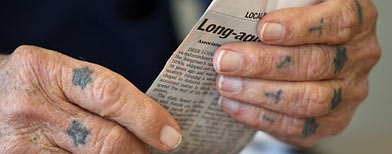



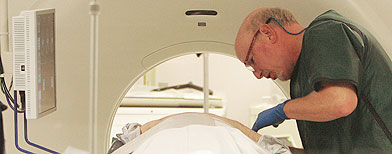






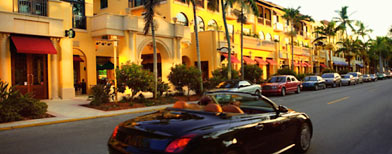


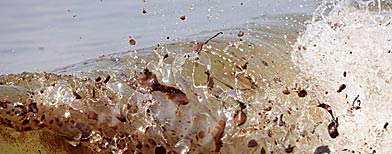




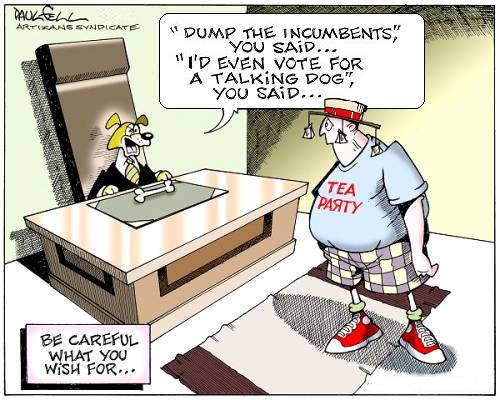

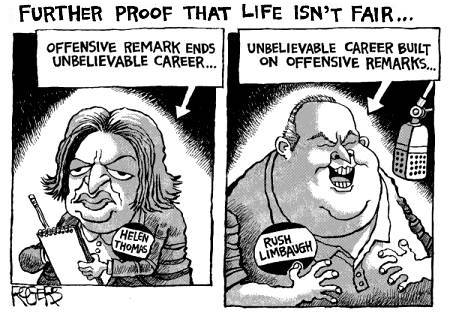



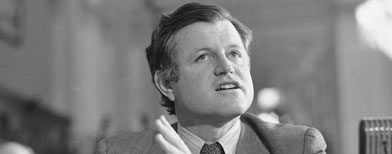
 Daniel Oliveros and Jeff Sokolin were known as the "sexy boys" because they often described the wines they sold as "sexy juice."
Daniel Oliveros and Jeff Sokolin were known as the "sexy boys" because they often described the wines they sold as "sexy juice."